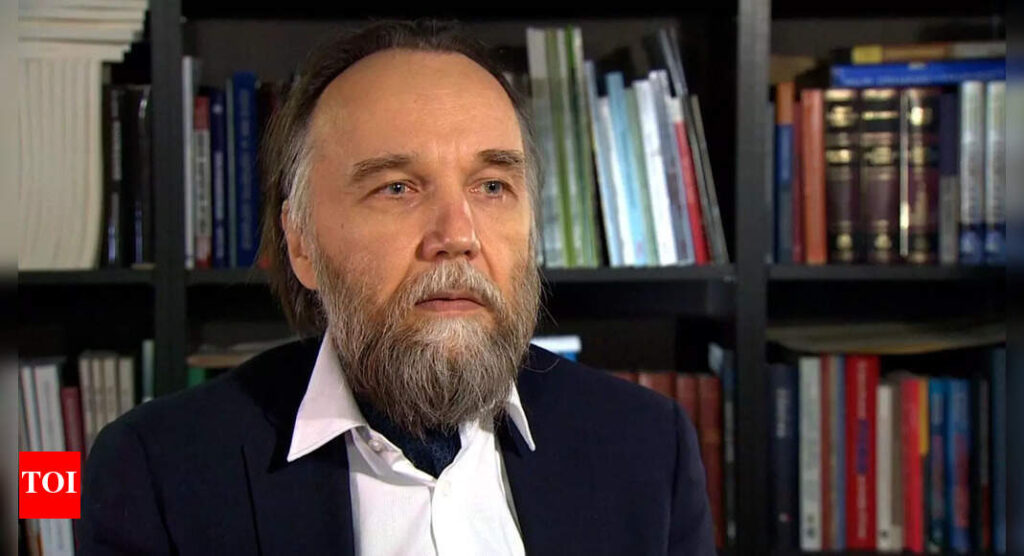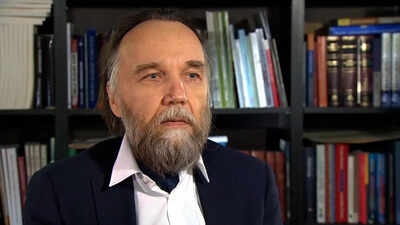US strikes Iran: Who is ‘Putin’s brain’ Aleksandr Dugin? And why is he angry at Donald Trump? | World News

When Donald Trump launched Operation Midnight Hammer—a high-octane, high-stakes bombing of Iran’s nuclear facilities—he may have expected Democrats to cry foul, Tehran to retaliate, and Fox News to salute.What he probably didn’t expect was Alexander Dugin—Russia’s most famous ultranationalist philosopher, known globally as “Putin’s brain”—turning against him in public, with a volley of dark, cryptic rage.“King has made himself no-king just in a week,” Dugin posted grimly, before dismissing Trump as a “deplorable narcissist blackmailed by the regular Deep State staff.” Not exactly Mar-a-Lago praise.So who is this bearded mystic whose fury is lighting up the far-right corners of X? And why does he care what Trump bombs?Alexander Dugin isn’t a regular pundit. He’s more Rasputin than Kissinger—equal parts political theorist, mystic nationalist, and civilisational evangelist. Born in the Soviet Union in 1962, Dugin came of age as Marxism faded and began crafting his own blend of geopolitics and esoterica. His 1997 magnum opus, Foundations of Geopolitics, proposed that Russia should dominate Eurasia, undermine the West, and forge an anti-liberal world order.He’s never held office, but Dugin’s ideas have permeated Russian military strategy, intelligence thinking, and the Kremlin’s broader vision—especially under Vladimir Putin. He views the world not in terms of states, but of civilisations: rootless, decadent Atlanticism (America and Europe) versus spiritually rooted Eurasianism (Russia, Iran, China, India).To Dugin, the great battle isn’t between left and right—but between modernity and tradition, materialism and myth, liberalism and destiny.And for a while, Trump looked like a myth made flesh.Trump the disruptorWhen Trump won in 2016, Dugin saw prophecy fulfilled. Here was a real estate tycoon-turned-political wrecking ball who shattered the globalist consensus, questioned NATO, mocked liberal pieties, and shook Washington’s priesthood.To Dugin, Trump was the first American president to reject the post-WWII order—not just in policy, but in spirit. He called Trump the “beginning of the end” of Western liberalism and urged Russian nationalists to embrace the “American revolt.”Even when Trump left office, Dugin remained hopeful. In March 2025, as Trump returned to power, he published The Trump Revolution: A New Order of Great Powers, framing MAGA as a global civilisational uprising. Trump wasn’t just a politician—he was a symbol of Western decay and the birth of a new world.Then Trump bombed Iran.Why the betrayal stingsDugin’s outrage isn’t just ideological—it’s personal. Iran is central to his vision of Eurasia. It’s a theocratic anti-Western civilisation-state, a partner in resisting the liberal empire. For Trump to strike it, with B-2 stealth bombers no less, is—in Dugin’s language—a civilisational crime.More than that, it shatters the illusion. Trump, once the symbol of defiance, now looks like just another American emperor. The kind who presses the red button when poll numbers sag.Dugin’s reaction is scathing: reposting libertarian critics of the war, amplifying Ron Paul’s anti-interventionist acolytes, even praising those calling for Trump’s impeachment. He lauds restraint, logic, and realism—qualities he once believed Trump possessed.What he sees now is capitulation.“If reality changes, you change your position,” he writes, in an almost bitter lament. But it’s clear who’s changed in his eyes—and it isn’t him.
Eurasianists vs Empire
Dugin’s break with Trump also reveals a larger fracture inside the global right. On one side are the national conservatives and anti-war libertarians who see military strikes as betrayal. On the other are hawkish populists who believe America’s power must still be projected—even if it means war.Trump, oddly, now finds himself accused of being too imperial by the very crowd that once cheered him for burning the empire down.For Dugin, this isn’t about Iran alone. It’s about the metaphysics of power. He didn’t support Trump because he thought America should be strong. He supported Trump because he thought America should collapse—spiritually, morally, and geopolitically.That Trump still wields the weapons of empire means the revolution, in Dugin’s eyes, has been aborted.
A war of symbols
The irony here is thick. Trump sees himself as a man of action. But to Dugin, action without metaphysical meaning is hollow. By striking Iran, Trump didn’t just commit a war crime (in Dugin’s view). He committed something worse: he proved the Deep State still rules, even in MAGA robes.Now, Dugin is watching from Moscow, disillusioned and disgusted. His king has no crown. His myth has no saviour. And his grand Eurasianist dream, at least for now, has no American wing.Bottom line:Dugin didn’t want Trump to win. He wanted Trump to burn it all down. And as the smoke rises from Natanz and Isfahan, all he sees is another American president doing what American presidents always do.The empire strikes Iran—and Dugin strikes back.







